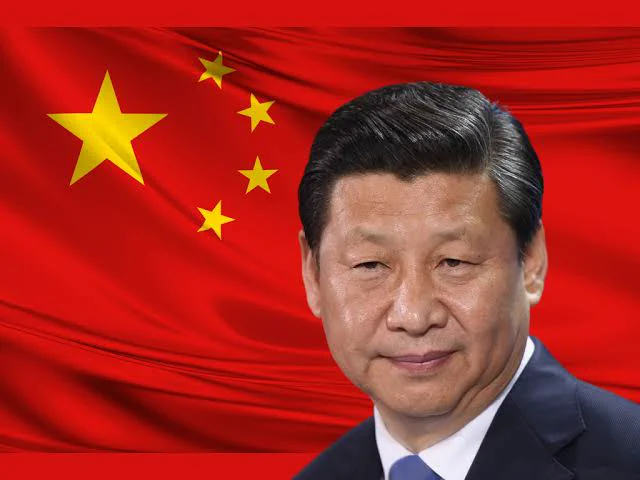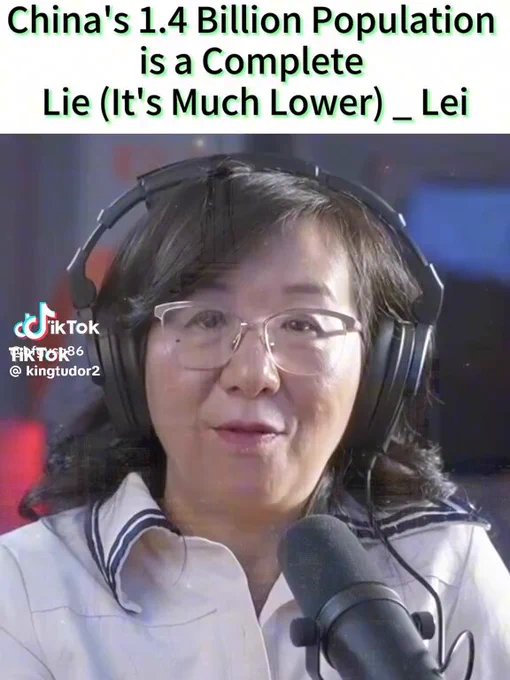Adolfo Asorlin 👨🏼🚀 retweeted
This Anti AI post got 182 000 likes and 1,3 Million views in less than 24 hours.
Those trying to destroy AI are fighting the same technology that will cure cancer, end Alzheimer’s and all other diseases. They are fighting technology that will reverse aging, and help us design the spaceships that will make us an interstellar civilization.
They’re fighting against the very progress that will almost certainly save their lives.
They are actively fighting against this technology and want it to fail, despite the fact that we already see daily headlines about scientific discoveries and technological breakthroughs made by AI.
They’re opposing the greatest leap forward in human history.
Like and share this tweet if you stand Pro AI, if you believe in progress, discovery, and the future.
Adolfo Asorlin 👨🏼🚀 retweeted
🇲🇾 The irony a clown tweeting from Kuala Lumpur lecturing others about “lingua franca fantasies.”
English spread through Malaysia not by brilliance, but by bayonet.
It wasn’t adopted; it was enforced.
Generations were told their own tongues were unfit for civilization.
Now, when Mandarin rises through merit instead of massacre, colonial remnants call it “threat,” not “progress.”
How pitiful must a former colonial subject be, to still lick the spittle left by his long-departed master?
Adolfo Asorlin 👨🏼🚀 retweeted
So much for “it’s hopeless to compete with us.”
A Chinese startup just built Kimi-K2, now ranked the second most intelligent AI model in the world using a fraction of OpenAI’s resources.
And this is just the start, there will be countless more models coming out of China.
Adolfo Asorlin 👨🏼🚀 retweeted
What an idiot.
I travelled on those trains, and they were packed with Chinese travellers
Adolfo Asorlin 👨🏼🚀 retweeted
BREAKING:
🇨🇳 Chinese scientists developing a drug to extend human life to 150 years — NYT
The breakthrough hinges on a grapeseed compound, PCC1, which in tests destroyed aged cells in mice, extending their lifespan by over 9%
This 'holy grail' technology is now being adapted for humans.
Adolfo Asorlin 👨🏼🚀 retweeted
This is pretty scary. I see a lot of logical takes here, even though I can’t verify the data.
From first principles: talent, energy, regulation, compute.
China is likely on par with or ahead in talent, clearly ahead in energy, and appears more supportive on regulation. They’re behind in compute today, but they can add more chips over time, even if they’re less efficient.
The only practical way for the U.S. to beat China is to make energy abundant and cheap, with fewer regulatory barriers.
Just look at the open-weighted models from China; they’re incredibly good. And since NVIDIA is banned there, they can be running entirely on the Chinese stack.
Soon, a large share of the world’s AI workloads could be running on Chinese open models from Chinese clouds powered by Huawei chips.
What would stop, say, an Indian developer from choosing cheaper Deepseek-like Chinese cloud API alternatives over say OpenAI’s API?
To be honest, I think the U.S. actually accelerated Chinese AI progress by blocking the H20s earlier (China banned them only after the export controls were lifted) which seems to have triggered a new sense of urgency and national pride around AI development there.
Adolfo Asorlin 👨🏼🚀 retweeted
The West builds AI as a monument to capital: closed, colossal, and worshipped for its “intelligence.”
Each model burns billions to chase a benchmark, while turning language into property and thought into debt.
China builds AI as an ecosystem: open, iterative, collective.
It doesn’t seek to replace human minds, but to converge them to make intelligence a commons, not a commodity.
🇺🇸 The U.S. trains AI to dominate the world.
🇨🇳 China trains AI to understand it.
Two models, two civilizations:
one expanding control, the other rediscovering cooperation.
Adolfo Asorlin 👨🏼🚀 retweeted
If China's population is 600 million, that means China's nominal GDP per capita is $29,666 US dollars.
Making China richer than oil-rich Bahrain and similar to Kuwait.
When measured by purchasing power, China's Per capita GDP would be $68,000.
Making China richer than the EU GDP per capita (PPP)
Thank you for your glowing endorsement of China's economic miracle.
China is massively lying about their population. It is not 1.4 billion people. It may be as low at 600 million.
In 1950 the population of China was estimated at 530 to 540 million, when the CCP took control.
It requires a fertility rate of 3.3 to triple the population in 50 years.
In 1959 the great famine in China resulted in an estimated 30 million deaths.
From 1979 to 2015 China had a one child policy.
Mathematically, there is simply no way for the population to have grown from 540 million to 1.4 billion between 1950 and 2020.
China is rapidly aging due to the one child policy which was too successful.
China has a long history of publishing fake economic data. There is zero reason to assume their official population data is accurate.
Adolfo Asorlin 👨🏼🚀 retweeted
World's safest nuclear power plant without dangerous uranium is on the way. #China
Adolfo Asorlin 👨🏼🚀 retweeted
It’s becoming obvious where this is heading. When a U.S. War Minister says we’re “not preparing for a period of peace,” he’s not talking about deterrence, he’s talking about mobilization. The references to 1939 aren’t symbolic; they serve as a warning that Washington is gearing up for a global confrontation and wants the public conditioned to accept it.
They’ll start with “readiness,” then “national service,” and before long, the draft will be back. You don’t expand the military industrial base, revive Cold War rhetoric, and talk about “actual war footing” unless you plan to feed it with people.
Under Trumpism, war isn’t just policy, it’s profit. The entire economic model revolves around conflict, fueling defense contracts, energy monopolies, and debt-driven militarization. Peace doesn’t generate revenue for the corporations that own the government. Permanent war does. This isn’t about defense, it’s about keeping the machine fed.
Adolfo Asorlin 👨🏼🚀 retweeted
What’s common between:
🔹UK in 1870
🔹US in 1910
🔹China in 2025
Each one was the #1 industrial power in the world, and accounted for 30% of the world’s manufacturing.
Adolfo Asorlin 👨🏼🚀 retweeted
America spends a lot of time talking about China, but China barely talks about America at all.
Adolfo Asorlin 👨🏼🚀 retweeted
🇺🇸: You emit too much!
🇨🇳: We have a large population; you're number one per capita.
🇺🇸: Then your total emissions are huge!
🇨🇳: You have the highest historical cumulative emissions, a quarter of the global total.
When rhetoric meets arithmetic,
hypocrisy burns cleaner than coal.
Adolfo Asorlin 👨🏼🚀 retweeted
US needs to build up its rare earth refining capabilities in the same way China needs to build up its semiconductor capabilities
There's such a trust deficit that neither country can rely on the other anymore for key items
Sad but Sinophobia forced this











































